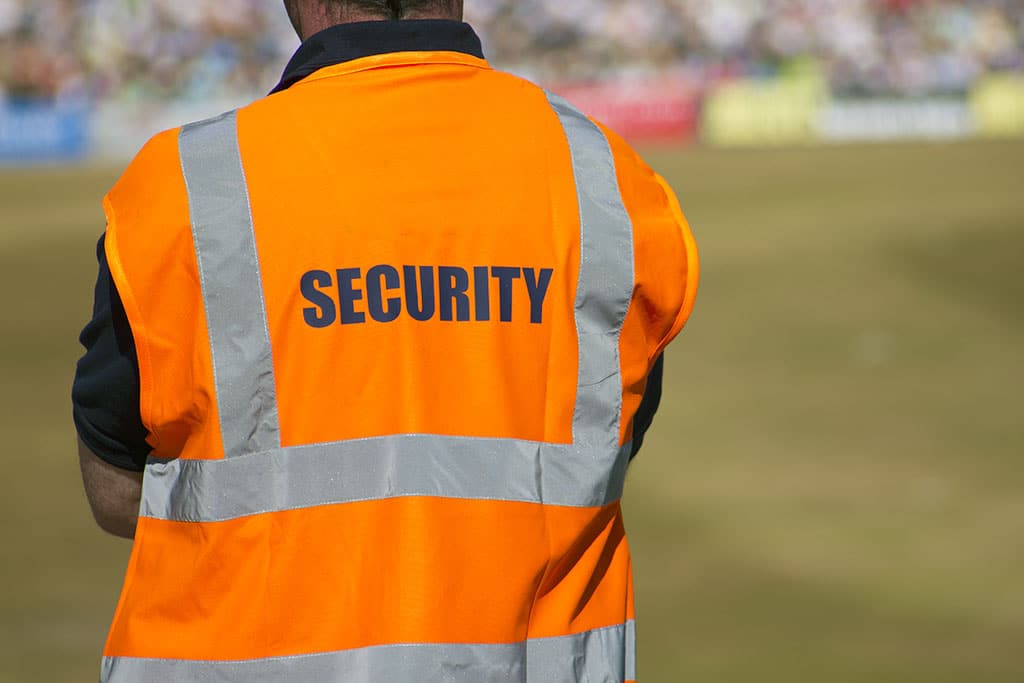If you’ve been following sports and security news, you’ve probably been seeing a lot of headlines about a recent scandal. Notably, the LA Dodgers have been sued with four separate lawsuits claiming excessive force by security personnel at their games.
While lawsuits like these tend to allege a lot of things as a general tactic, some of the details here are disturbing. Plaintiffs are claiming that they were tackled in the middle of discussions, blocked trying to return to their seats, and thrown to the ground so hard they were knocked out (this plaintiff also claimed they later suffered convulsions from the injuries). Two brothers even claimed that they were restrained and assaulted after giving their seats up to a handicapped couple. And notably, this isn’t the first time the Dodgers have faced lawsuits over the behavior of their security guards.
These kinds of suits are a dream come true for certain kinds of personal injury attorneys, and a nightmare for security firms that are likely to lose expensive contracts in the process. But what can security companies do? One vital key is recognizing that sporting events have unique challenges that can sometimes overwhelm guards, and that guards need specific kinds of training and experience to deal with them. That’s true of mega-stadiums just as it’s true of local little league games and sporting events down at the pub. Let’s go over some important reminders.
Experience with Crowd Control is a Must
In many cases, security guards keep alert for signs of a problem, like shouting, boisterous activity, running fast, or disagreements. That works in a retail store, but those are all very normal activities at a sporting event, and don’t necessarily mean anything is wrong. A guard without experience in crowd control at events like these may easily overreact or get overwhelmed by everything going on.
When possible, assign guards to sporting events that already have experience with crowds. Guards should be able to easily focus on keeping lanes and paths clear and directing the flow of a crowd. They should be able to note a problem scenario vs. sports fans just being sports fans and delegate their attention appropriately.
Talk with the Venue
No matter how much experience your firm has with sporting events, the venue (or the team hiring security, in some cases) probably has more. Discuss the terms of the security job with them and ask for the details. Venues may have specific things that security guards need to watch out for, or special concerns that should be addressed. This also helps the security firm designate guards for specific tasks, from bag checking to patrols around the stands, so everyone knows what they’re supposed to do.
Venues can also provide very valuable information about past incidents that may be likely to happen again. Did a fight break out last time between fans of these teams? Did teens sneak in alcohol at the previous game? Was someone caught with a firearm in the stands? Details like these help security guards know what to look for, so keeping communication clear is important. And of course, guards can get maps and tours of the venue to help prepare if they haven’t been there before.
Assign Guards Who Know How to Deal with Drunks
If it’s a big game (or even a small game), there’s a good chance that people will get drunk. Assign guards that know how to handle people who are intoxicated and taking things too far. Typically, de-escalation and a friendly, firm demeanor can solve a lot of drunk problems before they begin. Guards that have experience as bar security or bouncers can make excellent sports guards. Dealing with drunks can also be taught, and is a common lesson in many security guard training courses that you could arrange.
Train Guards to Avoid the Use of Force
The Dodgers’ lawsuits claim all kinds of injuries from security guard treatment. We don’t know how many of those allegations are accurate yet, but it’s important to be wary of how dangerous the use of force can be at sporting events. In crowded locations, it’s easy to hurt other people trying to subdue just one person. And venues tend to make injuries very easy, with concrete floors, hard edges, and rigid seating just waiting to bruise or break bones.
The best solution is to avoid the use of force entirely and de-escalate situations when possible. If necessary, guards should escort rowdy fans to a quieter area to get them to calm down or take further action. Guards should let attendees keep their mobility whenever possible: Holds or takedowns in these situations typically do more harm than good and open the door to lawsuits.
Final Notes
Sporting events have some interesting liability issues when it comes to security. It’s best to assign guards that have experience managing bars, clubs, and other places with intoxicated crowds. When possible, guards should avoid the use of force since the risk of injury can be much higher at sporting venues. Remember, you can equip your guards with important additional training to help them prepare for scenarios like sports. Even a single course can make a big difference and prepare your guards for future jobs.






